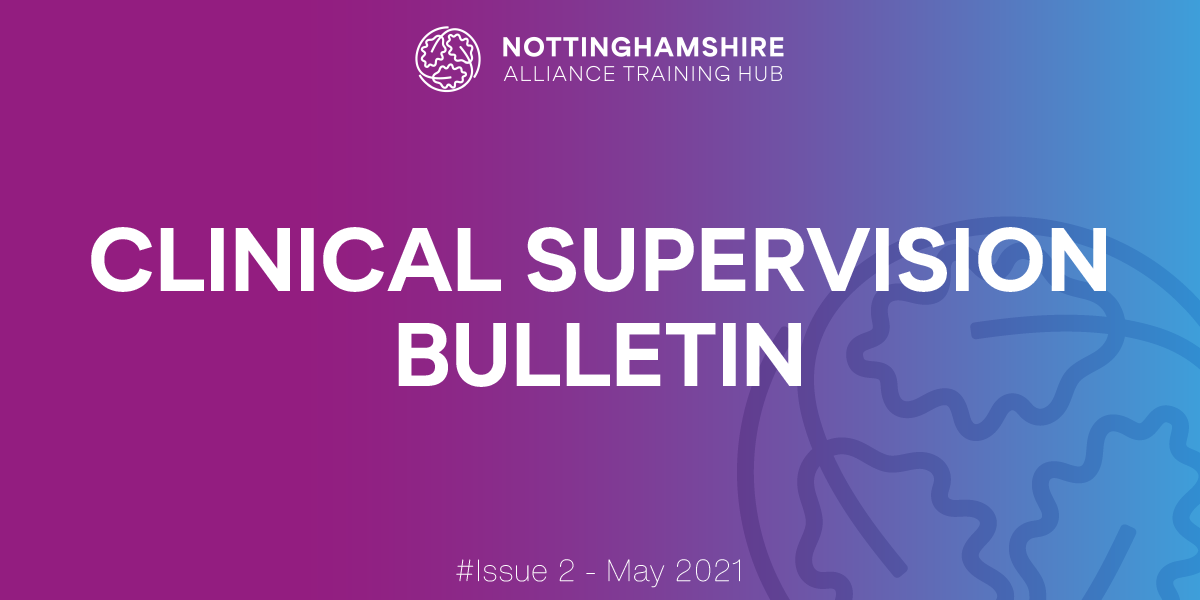Handling Concerns about Clinical Pharmacists
Clinical Supervision Bulletin – May 2021
Issue #2
What if more support is needed?
Pharmacists in GP Practice come from a range of backgrounds and have differing knowledge and skills. Development will therefore be individual. However, in practice there may be concerns raised about a professional. This bulletin outlines how to support these GP pharmacists should problems or issues arise.
How may concerns arise?
The GP mentor may be aware of issues either raised during supervision sessions or via other clinical staff at their practices
The pharmacist may have reflected on their practice and highlighted concerns
Practice audits, work-based assessments or incident reports may have highlighted potential knowledge / skills gaps
The senior pharmacist peer may have concerns identified during their 1:1 or group supervision sessions
Concerns have been raised - what should be done first?
Ideally the GP mentor should be made aware of the concerns (note the pharmacist peer should ideally liaise with the pharmacist’s consent).
The GP mentor and pharmacist should then have an open and reflective discussion about the potential concerns and, if possible, agree an action plan.
DOs during session:
Be honest and supportive
Allow the supervisee to tell you about their feelings and adopt a compassionate approach
Try and meet face to face or via a video platform to allow you to see body language and reactions
Keep a real-time record of session(s)
Choose an appropriate time to enable pharmacist to reflect i.e. not just before weekend or seeing patients, if possible
What if more support is needed?
If a more detailed, complex personal action plan is needed to address concerns, it is recommended (with the pharmacist’s consent) that the pharmacist / GP mentor potentially liaise with pharmacist’s:
Senior pharmacist mentor
Educational supervisor
Employing pharmacist lead (for advice and potential experience in handling issues previously)
Senior pharmacist within PCN (if available)
Example in practice
MB has been working in general practice for 6 months.
Concerns have been raised by clinicians reading her medication review entries that she may not be reacting appropriately to potential patient ‘red flags’ such as chest pain.
This issue was raised in a 1:1 face to face meeting with her mentor. The pharmacist explained that she felt that she was not always confident in ‘knocking on the door’ to the duty GP as they were so busy.
An action plan was agreed between both, which included:
Reading and reflecting on a relevant journal article
A regular 30 min daily debrief was arranged with named GP to go through patients
Flagging this training need to pharmacist mentor who arranged a case-based learning session
The action plan was reviewed after 1 month and the pharmacist felt a lot more supported and was more confident in identifying and actioning potential ‘red flags’.
Further information
For more information, including clinical supervision resources, go to the Clinical Supervision webpage.
Other Clinical Supervision Bulletins
Clinical Supervision Bulletin #1: A Brief Guide to Effective Support of Pharmacists in GP Practice
Clinical Supervision Bulletin #3: Developing Structured Medication Reviews
Clinical Supervision Bulletin #4: Developing Pharmacists Post Centre for Pharmacy Postgraduate Education (CPPE) Pathway
Clinical Supervision Bulletin #5: Introduction to Workplace-Based Assessments
Tagged as: Clinical Supervision Bulletin
Share this post:



